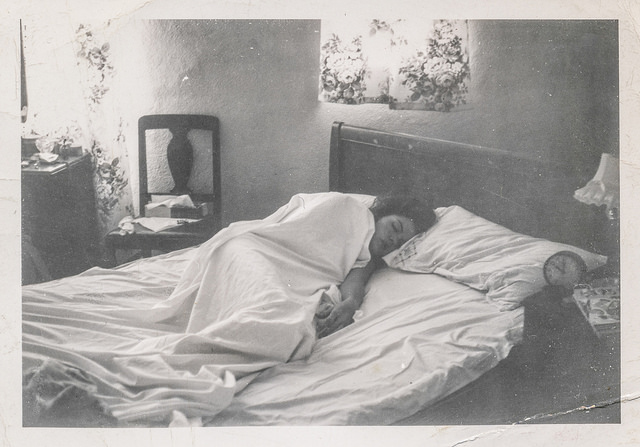Some insights into our own lives are so basic they feel like they knock us over in their nature of essential truth.
This happened to me recently.
A couple of weekends ago, I was teaching a mindfulness leadership retreat. It was a great day, except for the fact that I didn’t feel great. I was tired.
Actually, I was beyond tired; I was exhausted. I was that level of exhausted where my head was pounding, and I felt like I was swimming through a fog of experience rather than feeling bright and aware in the moment.
This was sad for me.
Because in front of me were the bravest meditators I’d seen, opening themselves to the vulnerability of their own beings.
I could see the beauty of the transformational nature of the meditation practice—which was great—but I couldn’t feel it.
Do you know what I mean?
My mind was telling me what was happening was good—and through that my mind was telling me it was “worth” being exhausted, because it was for a good cause.
But my body was telling me something else. My body was telling me there was a problem, based on the fact that I really didn’t feel good.
This is where the simplest, yet quite profound insight struck.
If I was too exhausted to enjoy the beauty in front of me, then I wasn’t really being of service, because the point of being of service is to experience the deeper beauties of the spiritual journey. To really enjoy and savor them.
That wasn’t happening for me. Feeling uncomfortable in my body due to a lack of self-care, I was truly missing the point.
From a kind of moralistic perspective, this insight is difficult to comprehend.
We are told so often that what really matters is being of service and giving to others. But if we are draining ourselves as we do these tasks, then are we really creating good in the world?
This is what the fog of the mind can do. It can blind us to the simple truths of health, quality of life and right seeing.
Many of us don’t even realize we’re living with basic belief systems that are preventing us supporting our journey on a daily basis.
This is so tricky, because many of these belief systems appear kind and giving, but in the end are actually hurting us.
In our consumeristic society, we have been told self-care is pedicures and expensive massages—anything to get us to buy more.
But at the core, self-care is just doing what we need to do to feel good in our bodies, which often looks like the simplest of choices—a good amount of sleep, healthy food, nice people and activities that make us smile. The basic building blocks that make up our day.
When we choose self-care, we choose to build strength and capacity within ourselves.
The mind and the body aren’t separate. They are all the same organism, directly supporting us to wake up and see the world clearly.
If we’re pushing ourselves through physical un-wellness in an attempt to get somewhere or be someone, then we’re missing the point.
Wellness can only happen in the moment, so each moment we must ask ourselves, “What would bring me health and well-being right now?”
And in each moment, the answer might be different. One moment we may need exercise, another a nap, and another a hard conversation we’ve been avoiding.
If we don’t commit to caring for ourselves, then we cannot explore the deeper realms of consciousness this human experience offers us. The path to going deeper is in enjoyment and appreciation of the moment. If we have not cared well for ourselves, then these openings will be difficult to see.
Since that retreat, where I realized I was missing out on really enjoying the gifts of my labor due to a lack of rest and self-care, I have slept, watched television, gone to the gym, gone skiing, spent time with friends and generally just stopped working so much. I’ve started enjoying my day, doing things that make me feel good. Not what I think is good to do, but things that actually bring a sense of wellness into my body and mind.
And I feel so much better. I feel more open, more aware and more available to the beauty of the challenges of the human experience.
The best insights are always the simplest ones.
~
Author: Ruth Lera
Image: simpleinsomnia/Flickr
Editor: Toby Israel
~
 Share on bsky
Share on bsky






Read 6 comments and reply